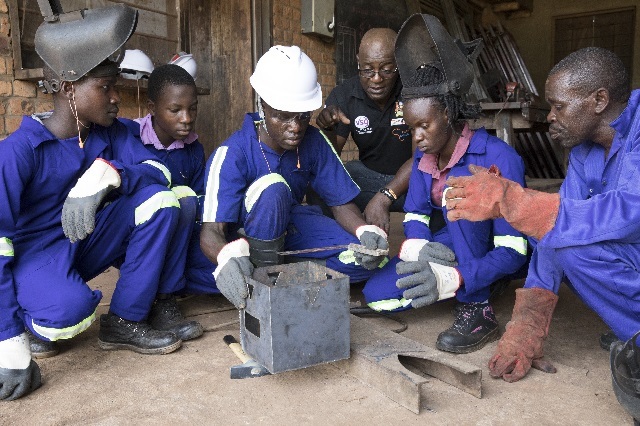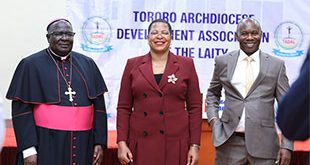
COMMENT | Michael Sekadde | Uganda has one of the youngest populations in the world, with 78 per cent of its citizens under the age of 30. Such a high number is an opportunity for the country’s growth but only when it is equipped with the right skills to realise its full potential.
Looking at the world trend, there’s a big possibility that children now in their lower level of education, especially in primary schools may do completely new jobs to those we know today. This implies that this young generation will require new skills altogether to fit in the fast-evolving places of work. To our disadvantage, things seem to be evolving fast.
The latest report by the United Nations Children’s Fund (UNICEF), PricewaterhouseCoopers (PwC) and Generation Unlimited, indicates that young people across the world are already unable to identify or acquire the skills needed for today’s job market contributing to a global skills gap and exacerbating youth unemployment.
Titled “Reaching YES: Addressing the Youth Employment and Skilling Challenge,” the report notes that young people aged 15-24 years old are unable to identify which skills they need for future employment opportunities. Moreover, young people are also unable to access relevant skills training and employers lack a standard to verify the skills new employees claim to possess.
Back home, the situation could not be any better evidenced by a large number of young people involved in low skills, low productivity and low-income economic activities.
Luckily, the government realized this early and started to provide relevant skills to the youth through the revamped Business Technical, Vocational Education and Training (BTVET) institutions in anticipation of future jobs.
The Ministry of Education and Sports’ decision to partner with the private sector to form Sector Skills Councils to help eliminate skills mismatch in various sectors is commendable because it could boost employment levels of our youth. However, this is not enough.
The government and the private sector need to create a skills mapping system to define skills, categories and competencies. Uganda National Bureau of Statistics indicates that between 600,000 and 700,000 youth. graduate from our various training institutions but there’s limited information on the current needs of the country in terms of the skillset required to secure available job opportunities and solve the unemployment problem. So, forecasting the skillset needed in the next few years could help the government and the private sector to align training towards achieving that goal.
Currently, the government is placing more emphasis on sciences but there’s a need to break down that further so that each stakeholder is aware of the skills needed in terms of numbers. i.e. doctors, electrical engineers, mechanical engineers or software engineers and so on. So, training of young people in specific skills should be deliberate based on a robust government human resources strategy and the country’s needs.
The private sector especially corporate entities need to actively help the government in skilling and retooling our youth. Besides internship opportunities offered to students, corporate entities need to come up with new models of training fresh graduates. This can be supported with a policy framework that can help establish a national skills program rolled out countrywide with some benefits accorded to it in form of tax reduction for corporate entities providing internship opportunities to fresh graduates.
Similarly, corporate entities can provide soft skills to our youth, both physically and virtually to boost their employability or success in entrepreneurship. MTN Uganda is currently providing part of this through initiatives such as the ACE program, a nationwide youth-centred economic empowerment program that impacts the relevant skills and creates opportunities for the youth.
This program designed for fresh graduates, those in and out of school, innovators, entrepreneurs well as tech-driven start-ups, is an invention of the MTN Uganda Foundation, executed in partnership with; the Ministry of ICT & National Guidance, The National ICT Innovation Hub, Centenary Technology Services, Refactory, MUBS Entrepreneurship Innovation, and Incubation Centre, as well as MTN’s Fintech subsidiary, MTN MoMo Uganda Limited.
Establishment of a digital database to enable young people to register such that their credentials are stored for a potential employer, or any stakeholder interested in their skills can be a plus. This should also be done for youth who have attained employment in a particular period to help analyze the trend of employment opportunities and in which sectors. Moreover, more and more services are going online connecting people and companies without physical interaction, more efficiently. However, the low level of smartphone and internet penetration due to, among other reasons taxes on devices and the internet, pose a big challenge because a majority of the population who are yet to embrace digitalization will miss out. But there’s always a starting point and the rest will follow.
Boosting information sharing among key stakeholders – private sector players especially potential employers, trade unions, government, educational institutions and youth – either through regional, national or continental could also play a big role in enabling the youth to access training opportunities and thus contribute to the country’s economic growth and development.
Thus, as the government takes bold steps to train the human resource, in this case, our youth, the private sector needs to take some more responsibility, especially towards the tail end of the government-offered training opportunities to finally hone the skills of these young people and get them ready for the job market. This way, both the government, private sector and the citizens will thrive and create a prosperous nation.
******

Michael Sekadde is the General Manager, Human Resources at MTN-Uganda.
 The Independent Uganda: You get the Truth we Pay the Price
The Independent Uganda: You get the Truth we Pay the Price



